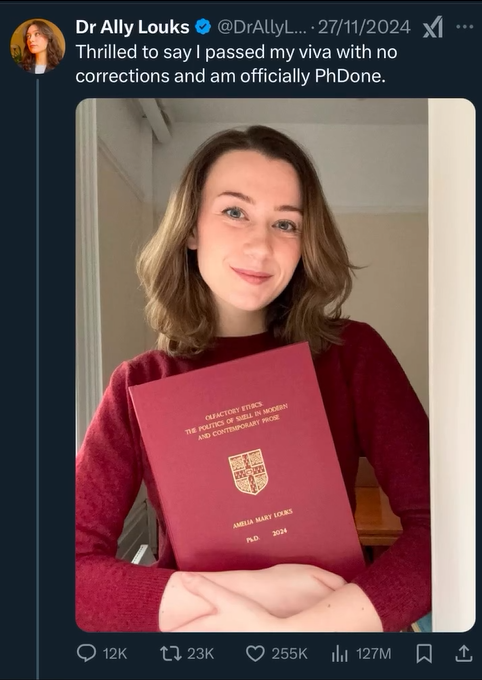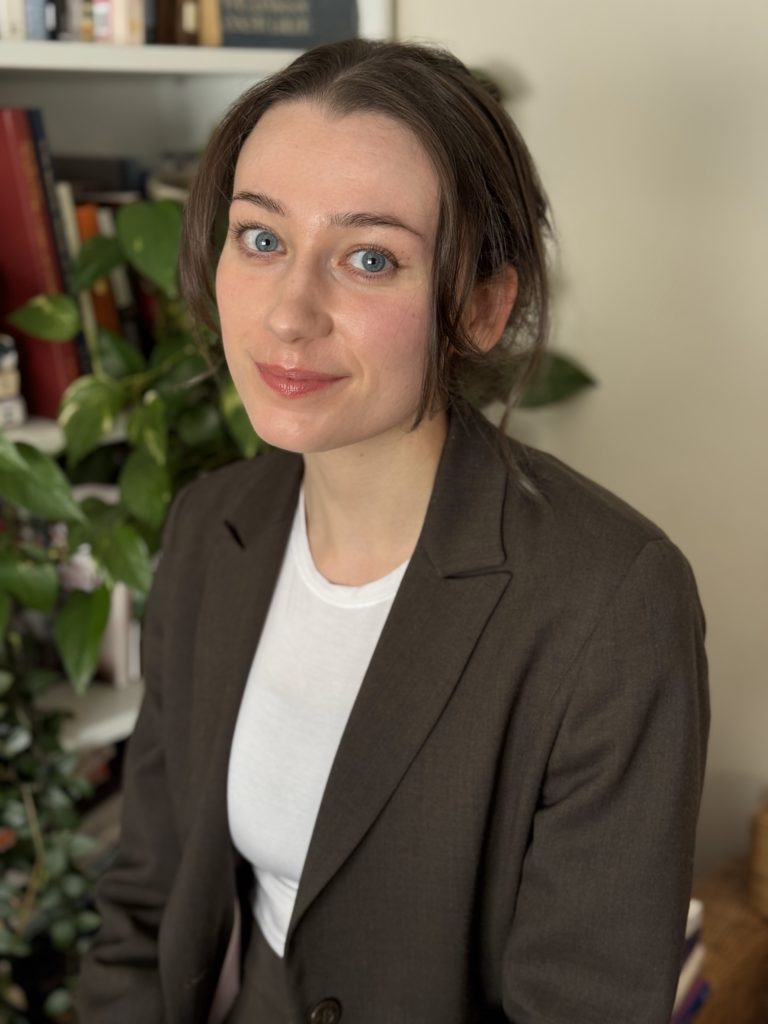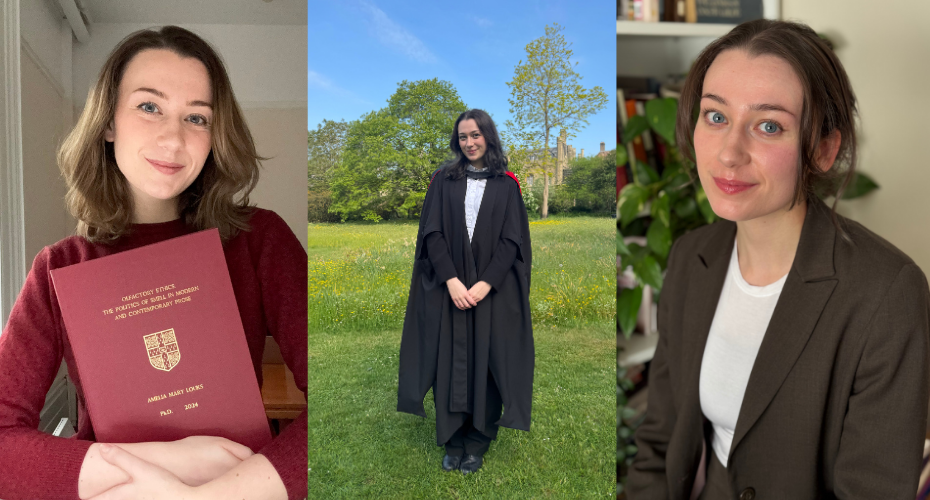Exeter alumna Dr Ally Louks (BA English, 2019) went viral last year after sharing her PhD research on the politics of smell in literature on X (formerly Twitter).
Ally completed her PhD in English Literature at the University of Cambridge in September 2024, with a dissertation titled Olfactory Ethics: The Politics of Smell in Modern and Contemporary Prose.
After posting a photo of herself holding a copy of the thesis on Wednesday 27 November, the image has been viewed more than 100 million times, receiving over 20,000 reposts and accumulating 11,000 comments. Since going viral, Ally and her research have been featured on the BBC, The New Statesmen, The New York Post, Varsity and more.
While much of the attention was positive and supportive of her research and her achievement, her post also received critical, misogynistic, and even abusive comments from trolls, with Cambridgeshire Police later confirming that they were investigating a report of a hate incident.

Speaking to us about the viral moment, Ally said the idea for her research had actually begun at Exeter, during a creative writing module in her second year.
Ally shared: “We had to write a poetry collection organised around a theme, and I chose ‘Perfume’. I was intrigued by how perfume adverts never seemed to mention the smell of the fragrance they were attempting to sell, and instead evoked a lifestyle or a feeling.
“Upon looking into the academic literature on smell, I discovered that there was an emerging field of smell studies that had begun to trace the sociopolitical pulls of olfaction [the sense of smell]. I found myself inspired by the work of Hans Rindisbacher, who was one of the very few literary scholars working on smell in literature at the time.”
Ally’s PhD delved into why some writers over the past century have used smell-related language to express harmful attitudes towards people and groups who are seen as objects of disgust or desire.
Her research additionally explored the long history of prejudice linked to smell and how it still influences thinking today. For instance, she examined how Hitler described Jewish people in Mein Kampf using language about smell, and how similar descriptions were used to justify racism during the transatlantic slave trade.
Although the virality of her research brought unwanted backlash, Ally chose to face it with a mix of humour and clarity.

“I tried to approach the discourse with intellectual curiosity and humour,” she told us. “For the first week there were certainly a lot of dissenting voices, but many of the criticisms in the comments were based on misreadings of the title of my thesis, abstract, or were straightforwardly misogynistic.”
Ally reflected that part of the reason her research provoked such a strong reaction is because smell is both universal and personal – we all have lived experiences of it, yet we rarely think about it critically. “Smell is intensely emotive and deeply personal, which makes it a generative subject,” she explained. “But we’re typically unaware of its political pulls, so when someone suggests it might operate in unnoticed ways, it can feel surprising – even suspicious.”
As a result, Ally decided to avoid arguing with people who were not open to a respectful conversation, and instead focused on providing information and context for those genuinely interested. She recalls,
“As time went on, I was able to start drawing attention to examples of the phenomena I address in my work and commentating on instances where my ideas are relevant, which helped those interested to better understand where I was coming from.”
Since her viral moment, Ally has signed with Janklow UK literary agency, who will represent both her academic and trade books. Her next project is a book aimed at a wider public audience.
Ally elaborates and shares, “I’m writing a book which draws on research in the sciences, the social sciences, the humanities, and beloved examples from popular media to change the way we think about smell.”
Ally also shared with us that she will be turning her thesis into a literary book and will be continuing to share her ideas on social media, so that people can engage with them for free.
Alongside this, since completing her PhD in September, Ally has been working as a Supervisor in English Literature, at the University of Cambridge. On reflecting on her time at Exeter, Ally mentioned how she greatly benefited from the mentorship of multiple senior members of the English Literature department, including Karen Edwards, Peter Riley, Beci Carver, Elliot Kendall, and John Bolin, who she said were “unerringly kind and supportive, and I am doing my best to pay their generosity forward through my own teaching style”.
Huge congratulations to Ally on completing her PhD, and navigating the interest in her research with such grace; we wish her all the best for her future in academia! If you would like to follow along with Ally’s career, you can find her on X (Twitter) at @DrAllyLouks and on Instagram at @AllyLouks.
If you have a story to share about your career since graduating from the University of Exeter, then we would love to hear from you! Our DMs are always open on socials (Instagram, LinkedIn, and Facebook), or you can email us at alumni@exeter.ac.uk.

